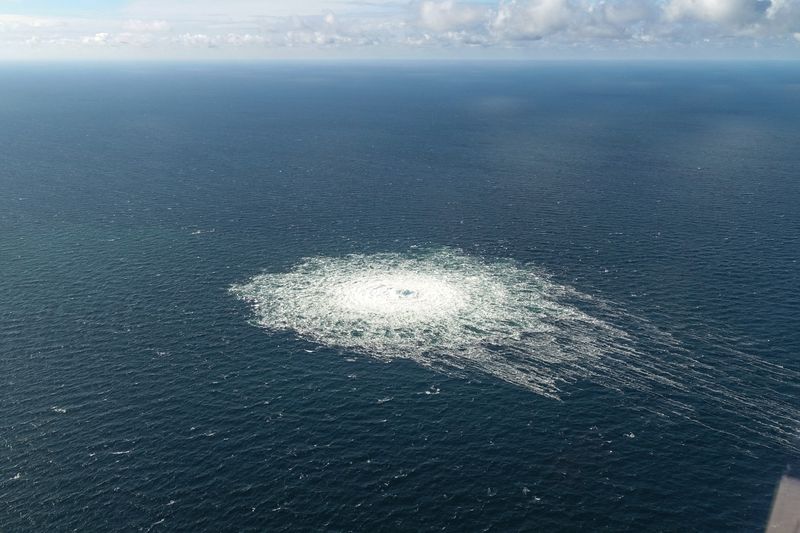By Johan Ahlander and Anna Ringstrom
STOCKHOLM (Reuters) -Sweden on Wednesday dropped its investigation into the explosions in 2022 on Nord Stream pipelines carrying Russian gas to Germany, saying it lacked jurisdiction in the case but had handed evidence it had uncovered over to German investigators.
The multi-billion dollar Nord Stream 1 and 2 pipelines transporting gas under the Baltic Sea were ruptured by a series of blasts in the Swedish and Danish economic zones in September 2022, releasing vast amounts of methane into the air.
Russia and the West, at loggerheads over Moscow's invasion of Ukraine in February that year, have pointed fingers at one another. Each has denied any involvement and no one has taken responsibility.
Swedish Public Prosecutor Mats Ljungqvist told Reuters: "We have a picture of what has happened, and what that picture consists of we cannot go into more detail, but it leads to the conclusion that we do not have jurisdiction," he said.
"It is not Sweden's task to continue this investigation."
Ljungqvist said the main task had been to establish whether Sweden or Swedish citizens were involved in the attack, which he said had taken place in international waters.
"The answer to that question is 'no' and there is nothing in this case that poses any risk to Sweden's security now that we have seen how things stand," he said.
Ljungqvist said the investigation had been extensive and the findings shared with German investigators, but secrecy laws prevented him from making the evidence public.
Denmark and Germany are carrying out separate investigations. A German government spokesperson said Berlin was still interested in solving the case.
Danish police said on Wednesday they expected to provide more information on their investigation "within a short time".
In July, Germany told the U.N. Security Council it had found traces of subsea explosives on a sailing yacht that may have been used to transport the explosives and that trained divers may have attached the explosives to the pipelines.
Russia has blamed the United States, Britain, and Ukraine for the blasts which largely cut it off from the lucrative European market. Those countries have denied involvement.
Some Western officials have said Russian military vessels were in the area at the time of the blasts, but others have said there is no hard evidence to implicate Russia, which called the suggestion it was behind the attacks "absurd".
Kremlin spokesman Dmitry Peskov said on Wednesday that Russia would now watch what Germany would do to investigate the explosions.

"Of course, now we need to see how Germany itself reacts to this, as a country that has lost a lot in relation to this terrorist attack," he said.
Moscow has repeatedly complained about lack of insight into the Western investigations.